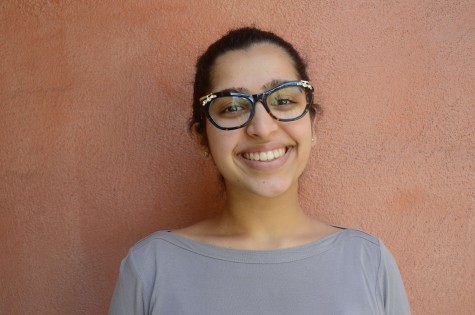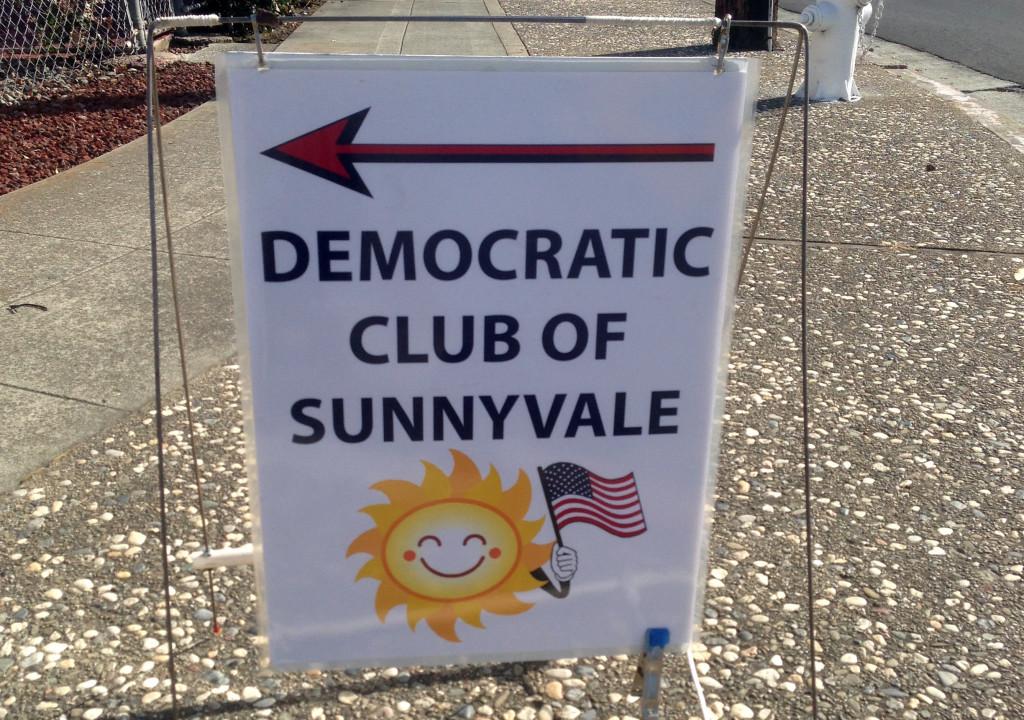New education policies help students across the bay area
Normally, people associate the word “politics” with one place: Washington D.C. Although that common thought is partially true, political events can take place anywhere.
The Democratic Club of Sunnyvale is one of the many political clubs where local citizens come to discuss recent issues with guest speakers and members of the City Council. Due to recent education and unemployment issues, the Democratic Club of Sunnyvale held a meeting on March 16 at the Fairbrae Swim Club with guest speaker Ro Khanna to talk over possible solutions and to promote his campaign for state representative.
Guest speakers such as Khanna attend the club meetings every month to share their passion for important issues in the community. This political club is an organization led by local democrats to maintain the representation of the Democratic Party in the Bay Area. Representatives from the City Council of Sunnyvale are usually present at the meetings to take note of the concerns and issues of the citizens.
Khanna graduated from Yale Law School and has participated in Barack Obama’s campaigns for senator and president. Currently, Khanna is teaching economics at Stanford University as well as law at Santa Clara University. Due to his extensive experience in the world of politics and education, Khanna brought many new ideas and concepts to the meeting regarding education policies.
The mayor of Sunnyvale, Toni Spitaleri, expressed his concern for the education in the Bay Area. Spitaleri shared his personal experience with the topic during the meeting. When Spitaleri was a senior in high school, his school gave students access to jobs, in which they would start as apprentices then go on to work full time at the same company. Now, students fresh out of college are often jobless due to the number of companies that hire people from overseas.
“The first thing that I think colleges want is that the students learn math and science, but when these students go out in the world, they cannot get a job. How do you bridge that?” Spitaleri said. “For school, math and science is new education because every second some new technology is coming into the industry, and companies want engineers with such experience. Our country needs to give more opportunities to students so that our economy builds.”
Agreeing with Spitaleri, Khanna mentioned a trend he has been noticing ever since he started university. In the Silicon Valley, companies such as Google employ workers from foreign countries due to their extensive experiences with today’s new technology. Local students do not seem to have the knowledge of modern machines and computers because many schools in the United States do not have such equipment available in the classrooms.
“I think we need more technology in the classroom and we need to have students learning how to code from a young age. We want to encourage more people to go into science and math if they have that kind of access in their school,” Khanna said. “With Harker, I think this school has such a good curriculum already and that other schools need to have the same type of technology and access.”
Khanna’s aspirations for the community are echoed in the actions of students around the community. Students on the Upper School campus also have been working towards solving local problems such as gun control and healthcare by volunteering and participating in political clubs. Freshman Shannon Hong shared her views on the topic of education policies and brought some new ideas into the discussion.
“I think that it is important to improve the education locally and nationally, but I believe that the government should have more complex machines in universities instead of high schools,” Shannon said. “If we do not have complex tools for students in universities, then their past high school experiences will not matter.”
High school students can voice their opinions in the political world because clubs such as the Democratic Club of Sunnyvale allow them to participate in such local political events. Sophomore Felix Wu has participated in many political events by volunteering, but he does not feel comfortable joining such a group and being labeled as a Democratic or a Republican.
“[These clubs] are a good opportunity for people who want to become involved in the community and in our political process. However, although I consider myself a Democrat, I do not align completely with the party on all the issues, so I feel that people should develop their own opinions on individual issues rather than blindly following the views of an entire party,” Felix said. “This is why I personally haven’t been too involved in partisan politics, and instead have worked more on individual issues such as gun control, climate change, the death penalty, and healthcare.”
The next meeting for the Democratic Club of Sunnyvale will be held on April 20.

Ayushi Gautam (12) is the Managing Editor of Harker Aquila. She has been a part of the journalism program since her freshman year. She was the Social Media...


















![“[Building nerf blasters] became this outlet of creativity for me that hasn't been matched by anything else. The process [of] making a build complete to your desire is such a painstakingly difficult process, but I've had to learn from [the skills needed from] soldering to proper painting. There's so many different options for everything, if you think about it, it exists. The best part is [that] if it doesn't exist, you can build it yourself," Ishaan Parate said.](https://harkeraquila.com/wp-content/uploads/2022/08/DSC_8149-900x604.jpg)




![“When I came into high school, I was ready to be a follower. But DECA was a game changer for me. It helped me overcome my fear of public speaking, and it's played such a major role in who I've become today. To be able to successfully lead a chapter of 150 students, an officer team and be one of the upperclassmen I once really admired is something I'm [really] proud of,” Anvitha Tummala ('21) said.](https://harkeraquila.com/wp-content/uploads/2021/07/Screen-Shot-2021-07-25-at-9.50.05-AM-900x594.png)







![“I think getting up in the morning and having a sense of purpose [is exciting]. I think without a certain amount of drive, life is kind of obsolete and mundane, and I think having that every single day is what makes each day unique and kind of makes life exciting,” Neymika Jain (12) said.](https://harkeraquila.com/wp-content/uploads/2017/06/Screen-Shot-2017-06-03-at-4.54.16-PM.png)








![“My slogan is ‘slow feet, don’t eat, and I’m hungry.’ You need to run fast to get where you are–you aren't going to get those championships if you aren't fast,” Angel Cervantes (12) said. “I want to do well in school on my tests and in track and win championships for my team. I live by that, [and] I can do that anywhere: in the classroom or on the field.”](https://harkeraquila.com/wp-content/uploads/2018/06/DSC5146-900x601.jpg)
![“[Volleyball has] taught me how to fall correctly, and another thing it taught is that you don’t have to be the best at something to be good at it. If you just hit the ball in a smart way, then it still scores points and you’re good at it. You could be a background player and still make a much bigger impact on the team than you would think,” Anya Gert (’20) said.](https://harkeraquila.com/wp-content/uploads/2020/06/AnnaGert_JinTuan_HoHPhotoEdited-600x900.jpeg)

![“I'm not nearly there yet, but [my confidence has] definitely been getting better since I was pretty shy and timid coming into Harker my freshman year. I know that there's a lot of people that are really confident in what they do, and I really admire them. Everyone's so driven and that has really pushed me to kind of try to find my own place in high school and be more confident,” Alyssa Huang (’20) said.](https://harkeraquila.com/wp-content/uploads/2020/06/AlyssaHuang_EmilyChen_HoHPhoto-900x749.jpeg)



